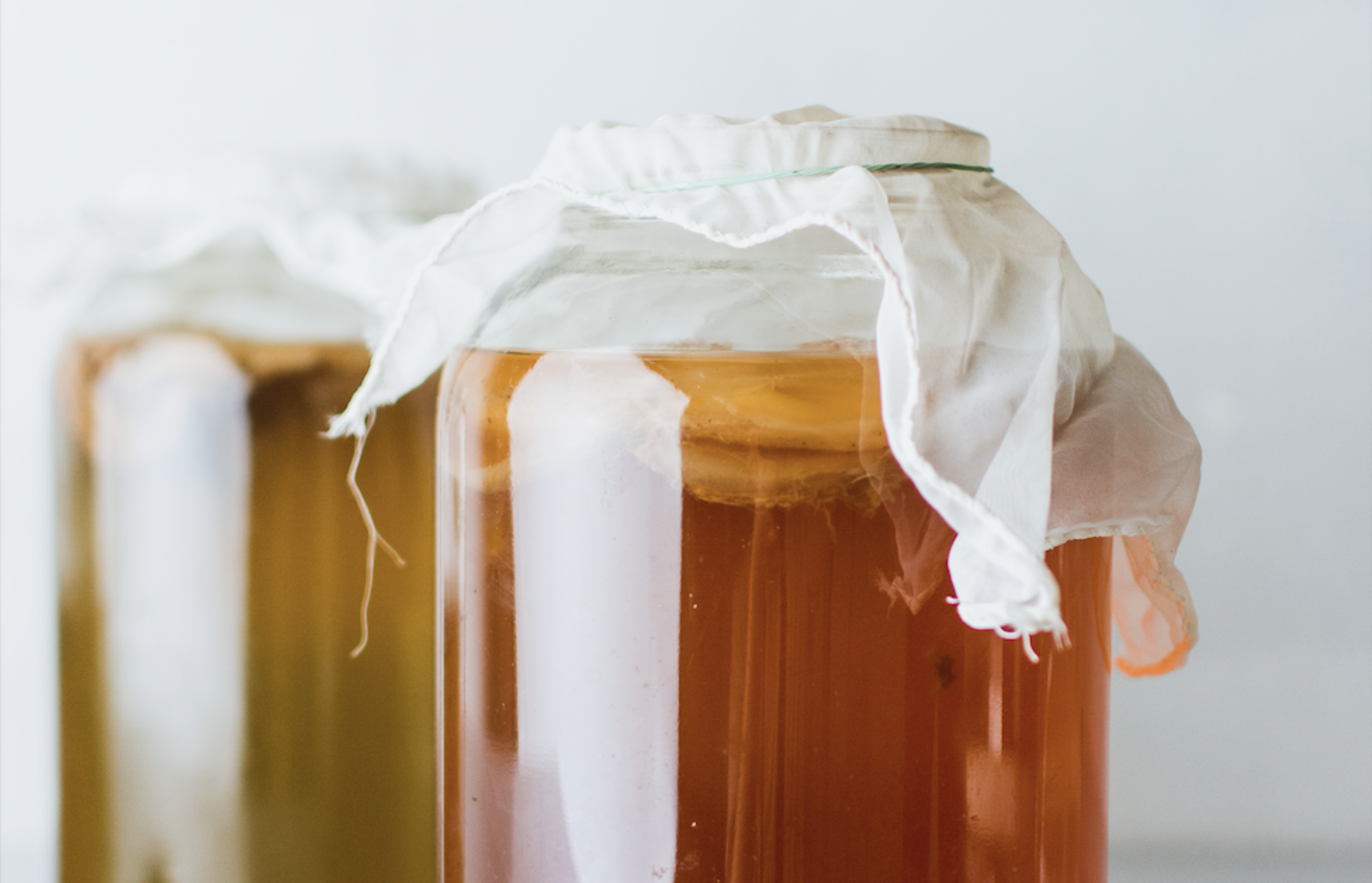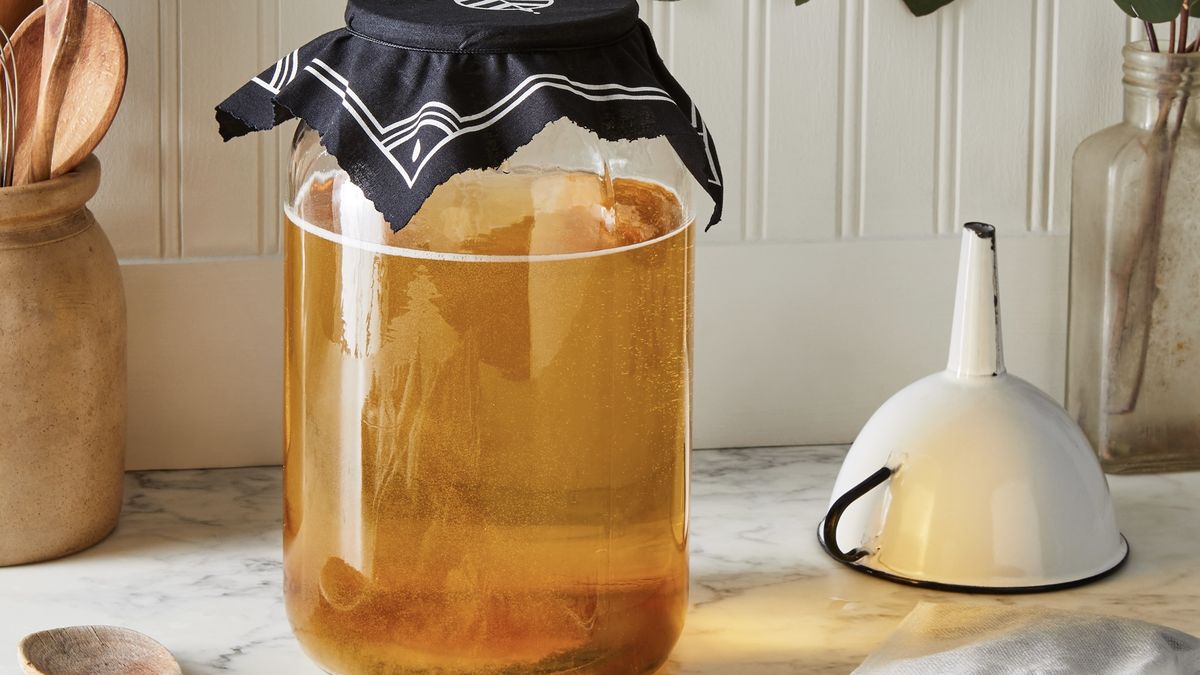Kombucha, the fizzy, fermented tea that has taken the health food world by storm, is renowned for its numerous health benefits and delicious taste. But what happens when your bottle of kombucha sits in the fridge past its expiration date? Is it still safe to drink? In this comprehensive guide, we’ll delve into the science behind kombucha’s shelf life, explore the implications of drinking expired kombucha, and provide practical tips for safely enjoying this beloved beverage.
Kombucha Shelf Life

Before we discuss whether you can drink expired kombucha, it’s essential to understand the factors that influence its shelf life.
Fermentation Process
Kombucha is created through the fermentation of sweetened tea with a symbiotic culture of bacteria and yeast (SCOBY). During fermentation, the SCOBY consumes the sugars in the tea and produces organic acids, carbon dioxide, and trace amounts of alcohol. This acidic and alcoholic environment helps preserve kombucha and inhibit the growth of harmful microorganisms.
Living Cultures
One of the key components of kombucha’s health benefits is its abundance of living probiotic cultures. These beneficial bacteria and yeast not only contribute to kombucha’s tangy flavor but also support gut health and digestion. However, the presence of live cultures means that kombucha is a perishable product that requires proper storage to maintain its quality and potency.
Can You Drink Expired Kombucha?

The short answer is: it depends. While kombucha typically has a long shelf life and can often be consumed safely past its expiration date, there are several factors to consider before taking a sip of expired kombucha.
Best Before vs. Expiration Date
Many commercially bottled kombuchas come with a “best before” or “expiration” date stamped on the packaging. It’s important to understand the distinction between these two dates:
- Best Before Date: This date indicates the manufacturer’s recommendation for optimal flavor and quality. Consuming kombucha beyond the best before date may result in slight changes in taste and texture, but it is generally safe to drink.
- Expiration Date: An expiration date suggests that the product may no longer be safe to consume after a certain point. However, kombucha is a fermented product with natural preservatives, so it often remains safe for consumption beyond the expiration date.
Signs of Spoilage
While expired kombucha may still be safe to drink in many cases, there are certain signs of spoilage to watch out for:
- Unusual Odor: If your kombucha smells foul or off-putting, it may have undergone spoilage due to the growth of harmful microorganisms.
- Mold Growth: Visible mold growth on the surface of kombucha indicates contamination and renders the beverage unsafe for consumption.
- Abnormal Texture: Kombucha that appears slimy or has an unusual texture may have deteriorated and should be discarded.
Risk Factors
Several factors can increase the risk of kombucha spoilage:
- Improper Storage: Kombucha should be stored in the refrigerator to slow down the fermentation process and preserve its quality. Exposure to high temperatures or prolonged storage at room temperature can accelerate spoilage.
- Contaminated Equipment: Using contaminated utensils or brewing equipment can introduce harmful bacteria or mold into the kombucha, increasing the risk of spoilage.
- Extended Storage: While kombucha can often be consumed safely past its expiration date, excessively long storage periods may lead to a decline in quality and an increased risk of spoilage.
Tips for Safely Enjoying Kombucha

To minimize the risk of consuming spoiled kombucha, follow these tips for proper storage and consumption:
Store in the Refrigerator
Always store kombucha in the refrigerator to slow down the fermentation process and preserve its freshness. Aim for a temperature of around 4°C (39°F) to maintain the integrity of the living cultures.
Check for Signs of Spoilage
Before consuming expired kombucha, inspect it for any signs of spoilage, such as unusual odor, mold growth, or abnormal texture. If in doubt, it’s best to err on the side of caution and discard the beverage.
Consume Within a Reasonable Timeframe
While kombucha can often be consumed safely past its expiration date, it’s advisable to consume it within a reasonable timeframe to ensure optimal flavor and quality. Aim to drink expired kombucha within a few weeks to minimize the risk of spoilage.
Practice Good Hygiene
When brewing homemade kombucha, practice good hygiene to prevent contamination. Use clean utensils, sanitized brewing equipment, and follow proper brewing techniques to minimize the risk of spoilage.
Trust Your Senses
Ultimately, the decision to drink expired kombucha should be based on your senses and judgment. If the kombucha looks, smells, and tastes normal, it’s likely safe to consume. However, if you have any doubts or concerns, it’s best to discard the beverage and opt for a fresh bottle.
Conclusion
In conclusion, drinking expired kombucha is often safe as long as the beverage shows no signs of spoilage and has been properly stored. However, it’s essential to exercise caution and use your judgment when consuming expired kombucha, especially if it has been stored for an extended period. By following proper storage practices and paying attention to signs of spoilage, you can safely enjoy the numerous health benefits of this probiotic-rich beverage.
I’m Chen Mina, from Vol de Nuit, who has a special passion for bartending, especially mixing wine, beer, and cooktail. Here you will find content about alcoholic beverages, I will bring you knowledge that few people know about this drink.





